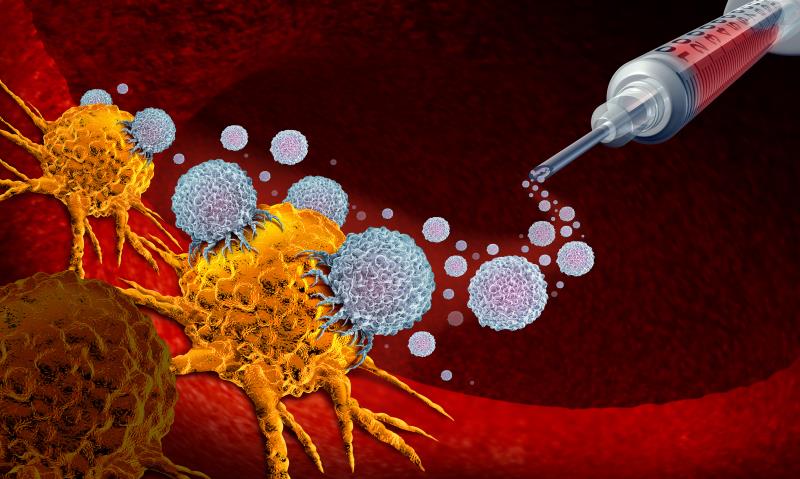
The efficacy and safety of immunotherapy for treating non-small-cell lung cancer (NSCLC) does not appear to be compromised with old age, suggests a retrospective study.
“As NSCLC is often diagnosed in patients aged ≥70, real-world data about efficacy and safety of immunotherapy in elderly patients are essential,” said the researchers. “[However,] most trials with immune checkpoint inhibitors for NSCLC included only small subgroups of patients aged ≥65.”
The retrospective analysis included 290 patients (median age 67 years, 61.7 percent male) with advanced NSCLC who were treated with immunotherapy. They were stratified by age into three groups: age <70 (n=180), 70–79 (n=94), and ≥80 years (n=16). [Lung Cancer 2019;137:38-142]
Overall, the response rates were similar across the three age groups: 21.5 percent, 22.3 percent, and 18.8 percent for patients aged <70, 70–79, and ≥80 years, respectively (p=0.947).
Also, there were no significant differences in progression-free survival (PFS; median, 2.8 vs 3.5 vs 2.6 months, respectively; p=0.202) and overall survival (OS; median, 9.1 vs 11.3 vs 6 months; p=0.515) among the three age groups.
In contrast, factors that appeared to influence treatment outcomes included performance status (p<0.0001 for PFS, p=0.0192 for OS), line of immunotherapy (p<0.0001 for both PFS and OS), and number of metastatic sites (p=0.0842 for PFS, p=0.0235 for OS).
“Poor performance status appears as a strong negative predictive and prognostic factor during treatment with immune checkpoint inhibitors,” the researchers noted. “This underlines the importance of considering performance status, instead of age, when evaluating patients potentially candidate to immunotherapy.”
Stratification by gender (p=0.516 for PFS, p=0.5154 for OS) or histology (p=0.9057 for PFS, p=0.1002 for OS) did not influence outcomes.
Overall, immunotherapy was well tolerated, with toxicity grade ≥2 occurring in less than one third of the patients. There were “no toxicity concerns emerged even among the eldest patients”, according to the authors, who reported that the rates of adverse events grade ≥2 were 35.8 percent, 32.7 percent, and 37.5 percent for patients aged <70, 70–79, and ≥80 years, respectively (p=0.6493).
Although the eldest patient subgroup was relatively small, the researchers said the finding was “particularly relevant” considering that published data available for patients aged ≥75 years, or even ≥80 years, were limited.
“To our opinion, immune checkpoint inhibitors should be considered irrespective of age, provided an optimal performance status at baseline,” concluded the researchers. “Of note, immunotherapy is often the only therapeutic option applicable to these cases considering the toxicity of chemotherapy.”
"Therefore, a comprehensive evaluation of each cancer patient in advanced age, with the cooperation of a specialist in geriatric medicine, considering the whole medical picture and the global functioning besides the age, should be performed when deciding if a patient is candidate or not to receive active treatment,” they added.